10 Best Classic Station Wagons. Do You Know Who They Are?

Station wagons have long been a symbol of practicality and family road trips, but in the United States, they also carried a legacy of power, craftsmanship, and innovation. From their early wooden-bodied designs in the 1910s to their peak in the mid-20th century, American station wagons became an integral part of automotive history. While luxury SUVs dominate the market today, these classic wagons remain timeless.
Key Takeaway:
- American station wagons combined power, practicality, and timeless design. From the 1937 Ford V-8 to the 1966 Ford Country Squire, these classics remain iconic. Their innovation, luxury, and collectibility continue to influence today’s automotive landscape.
Contents
Did You Know?
- The first mass-produced station wagon was the 1923 Star Model C Depot Hack. (Source: Hemmings)
- Station wagons gained popularity in the 1950s due to suburban expansion and the baby boom.
- The term “station wagon” originates from early models designed to transport passengers and luggage to train stations.
- Here’s a look at ten of the greatest American station wagons ever made, backed by historical context and specifications from Hemmings, Hagerty, and manufacturer archives.

Comparison Table: Classic American Station Wagons
| Model | Year | Engine | HP | Notable Feature | Original Price ($) |
|---|---|---|---|---|---|
| Ford V-8 Station Wagon | 1937 | 221 cu-in V-8 | 60-85 hp | First mass-produced all-wood station wagon | 755 |
| Chrysler Town & Country | 1942 | 250.6 cu-in I6 | 120 hp | First all-steel roof wagon | N/A |
| Buick Estate Wagon | 1949 | 320 cu-in I8 | 150 hp | Clam-shell tailgate design | 3,176 |
| Pontiac Star Chief Safari | 1955 | 287 cu-in V-8 | 180-200 hp | Inspired by Corvette Nomad | N/A |
| Rambler Cross Country | 1956 | 195.6 cu-in I6 | 120 hp | Compact pillarless hardtop | 2,326 |
| Oldsmobile Super 88 Fiesta | 1957 | 371 cu-in V-8 | 277 hp | Rare hardtop design | 3,017 |
| Chrysler Town & Country | 1960 | 350 cu-in V-8 | 350 hp | Luxury interior & push-button transmission | 3,691 |
| Studebaker Lark Wagonaire | 1963 | 289 cu-in V-8 | 289 hp | Sliding rear roof panel | 2,550 |
| Oldsmobile Vista Cruiser | 1964 | 330 cu-in V-8 | 230-290 hp | Panoramic glass roof | 2,938 |
| Ford Country Squire | 1966 | 428 cu-in V-8 | 345 hp | Magic Doorgate feature | 3,289 |
Top 10 Classic American Station Wagons
1. 1937 Ford V-8 Station Wagon
Ford revolutionized station wagons by bringing their assembly in-house in 1936, opening a dedicated factory in Iron Mountain, Michigan. The 1937 Ford V-8 Station Wagon featured a 112-inch wheelbase and seating for eight in a 3-2-3 configuration. Buyers had a choice between a 60-hp or an 85-hp, 221-cubic-inch V-8 engine, making it a strong performer for its time. Priced at just $755, it was a practical yet stylish family car. (Source: Hemmings)

2. 1942 Chrysler Town & Country Wagon
For those seeking more than the standard Ford V-8, the 1942 Chrysler Town & Country Wagon offered luxury and innovation. This model was the only station wagon at the time with an all-steel roof. Measuring 217 inches long with a 121.5-inch wheelbase, it accommodated up to nine passengers. Under the hood, it packed a 120-hp, 250.6-cubic-inch inline-six engine, paired with a fluid-drive semi-automatic transmission.
3. 1949 Buick Estate Wagon
The Buick Estate Wagon introduced post-war elegance and power. Available in Super and Roadmaster trims, this station wagon featured a 150-hp, 320-cubic-inch straight-eight engine with Dynaflow automatic transmission. It also boasted two-row seating for six passengers and a clam-shell tailgate, a precursor to modern SUV cargo solutions.
4. 1955 Pontiac Star Chief Custom Safari
Pontiac’s answer to the Chevrolet Nomad, the 1955 Safari wagon took inspiration from the 1954 Chevy Corvette Nomad Motorama concept. It featured a 180-hp or 200-hp 287-cubic-inch V-8 engine with a Hydra-Matic four-speed automatic transmission, laying the foundation for today’s luxury performance wagons.
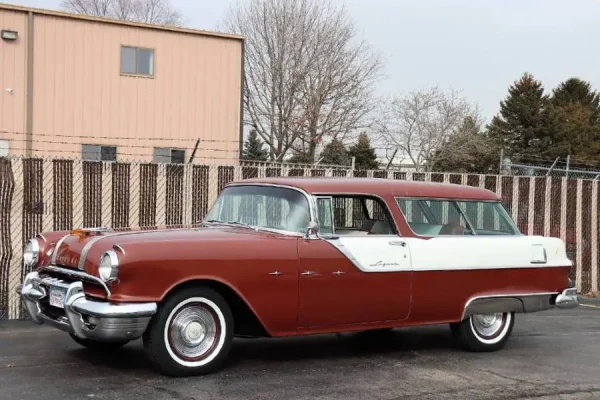
5. 1956 Rambler Cross Country
The 1956 Rambler Cross Country was ahead of its time with a four-door pillarless hardtop wagon design. Measuring 193.6 inches on a 108-inch wheelbase, it was more compact than its competitors but still spacious.
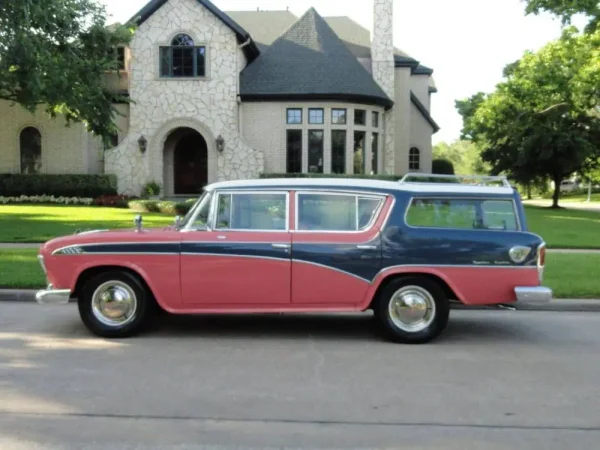
6. 1957 Oldsmobile Super 88 Fiesta
A rare gem among station wagons, the 1957 Oldsmobile Super 88 Fiesta featured a stylish hardtop design, only produced for two years. Powered by a 277-hp, 371-cubic-inch V-8 engine, it was one of the most powerful wagons of its time.
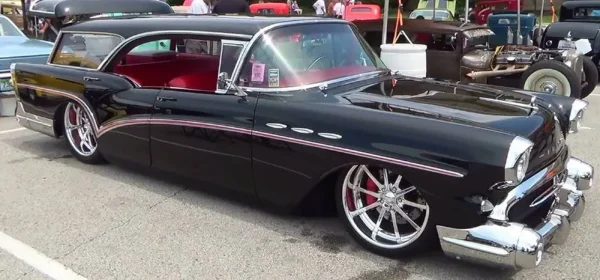
7. 1960 Chrysler Town & Country
The 1960 Chrysler Town & Country wagons were among the most luxurious in the segment. The New Yorker variant measured 219.6 inches long and came equipped with a 350-hp V-8 engine paired with a push-button Torqueflite automatic transmission.
8. 1963 Studebaker Lark Wagonaire
One of the most innovative wagons ever built, the 1963 Studebaker Lark Wagonaire featured a sliding rear roof panel designed by legendary industrial designer Brook Stevens. (Source: Hagerty)

9. 1964 Oldsmobile Vista Cruiser / 1965 Buick Sportwagon
These two wagons introduced panoramic glass roofs, adding a sense of openness to their three-row designs. The 1964 Oldsmobile Vista Cruiser was powered by a 290-hp or 230-hp 330-cubic-inch V-8.

10. 1966 Ford Country Squire
Ford called itself “The Wagonmaster,” and the 1966 Ford Country Squire was one of its finest creations. It introduced the Magic Doorgate, a rear tailgate that could open like a door or drop down like a conventional tailgate.

Restoration & Collectibility
- Most Valuable Models: The 1955 Pontiac Safari and 1957 Oldsmobile Super 88 Fiesta can fetch over $50,000 at auctions. (Source: Barrett-Jackson)
- Restoration Costs: Restoring a classic station wagon ranges from $10,000-$30,000, depending on parts availability and condition.
Conclusion
American station wagons may no longer dominate the roads, but their legacy lives on in today’s SUVs. These iconic models represent a golden era of automotive ingenuity, where power, practicality, and style merged seamlessly.
Have you ever owned a classic station wagon? Share your memories or restoration tips in the comments!
Frequently Asked Questions (FAQs)
1. What was the most powerful classic American station wagon?
The 1960 Chrysler Town & Country was among the most powerful, featuring a 350-horsepower V8 engine paired with a push-button Torqueflite automatic transmission. The 1957 Oldsmobile Super 88 Fiesta was another powerhouse, producing 277 horsepower from a 371-cubic-inch Rocket V8.
2. Why did American station wagons decline in popularity?
Station wagons fell out of favor due to the rise of SUVs and minivans in the 1980s and 1990s. Consumers preferred vehicles with higher ground clearance, all-wheel drive, and more rugged styling. Additionally, government regulations on fuel efficiency made large V8-powered wagons less viable.
3. Are classic American station wagons good investments?
Yes, some classic wagons have appreciated in value due to rarity and collector interest. Models like the 1955 Pontiac Safari and 1957 Oldsmobile Super 88 Fiesta can fetch over $50,000 at auctions (source: Barrett-Jackson). Wagons with original parts and factory options tend to be the most valuable.
4. What is the rarest classic American station wagon?
The 1957 Oldsmobile Super 88 Fiesta is one of the rarest, as it was only produced for two years. Another rare model is the 1963 Studebaker Lark Wagonaire, which featured an innovative sliding roof design but had limited production.
5. Which classic station wagons had the best design features?
Oldsmobile Vista Cruiser (1964-72): Iconic panoramic glass roof
Studebaker Lark Wagonaire (1963): Sliding rear roof panel for extra cargo space
Ford Country Squire (1966): Magic Doorgate, which opened like a door or dropped like a tailgate
6. How much does it cost to restore a classic station wagon?
Restoration costs vary based on condition and parts availability. A basic restoration can cost $10,000 to $30,000, while high-end restorations (especially for rare models) can exceed $50,000. Finding wood paneling and factory trim for vintage wagons can be particularly expensive.
7. Can you daily drive a classic American station wagon?
Yes, but it depends on the model and modifications. Older wagons with carbureted engines may require regular maintenance and tuning. Many owners upgrade to modern disc brakes, electronic fuel injection (EFI), and overdrive transmissions for better reliability.
8. What was the last American station wagon produced?
The last true American station wagon was the 2011 Cadillac CTS-V Wagon, a high-performance model with a 556-horsepower supercharged V8. However, traditional wagons had mostly disappeared from U.S. lineups by the early 2000s, replaced by crossovers and SUVs.
9. Why do car enthusiasts love classic station wagons?
Classic wagons offer a blend of practicality, power, and retro styling. Many models share their platforms with muscle cars (e.g., the Oldsmobile Vista Cruiser with the Cutlass, or the Pontiac Safari with the Star Chief), making them ideal for restomods and sleeper builds.
10. What’s the best classic station wagon for beginners?
The 1964-1972 Oldsmobile Vista Cruiser and 1966-1978 Ford Country Squire are great options due to parts availability, reliability, and strong enthusiast communities. They also offer V8 power with modern upgrade potential for daily driving.
Sources & References
Hemmings Classic Car
Hagerty Automotive News
Manufacturer Archives & Restoration Guides
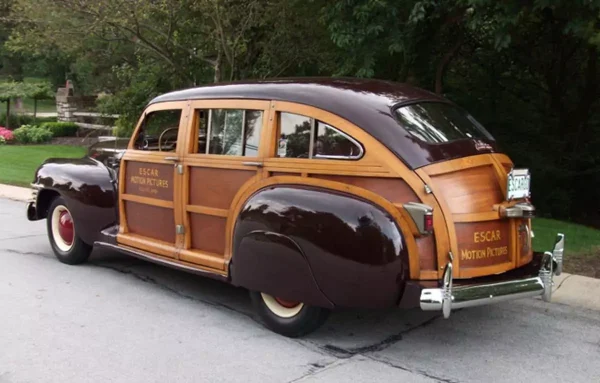
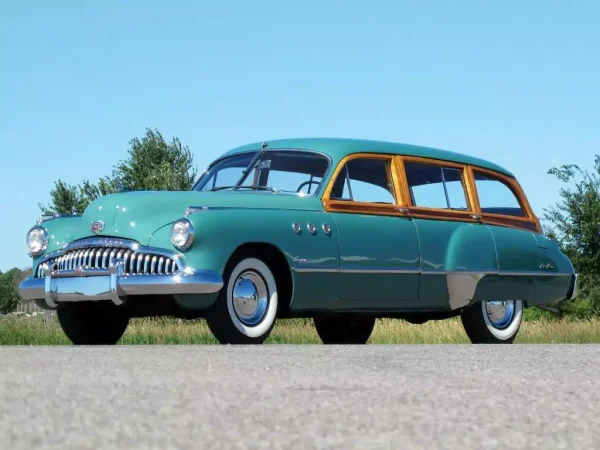


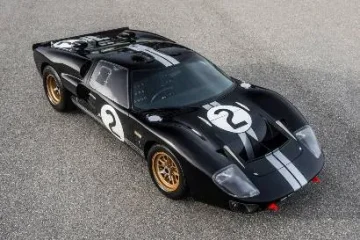
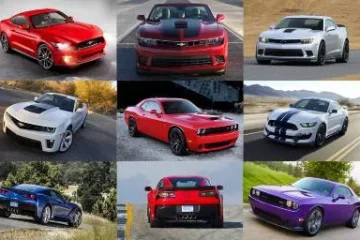
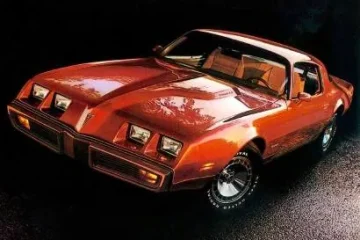
0 Comments